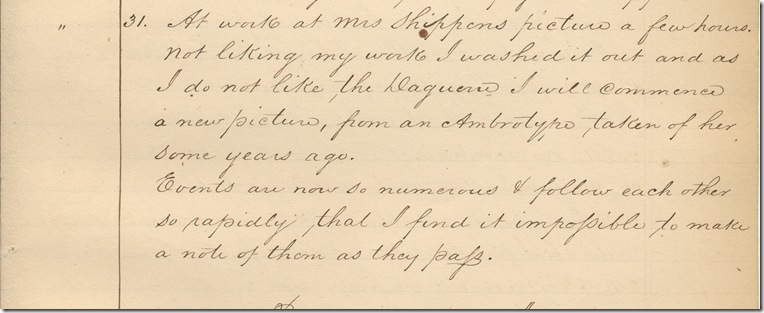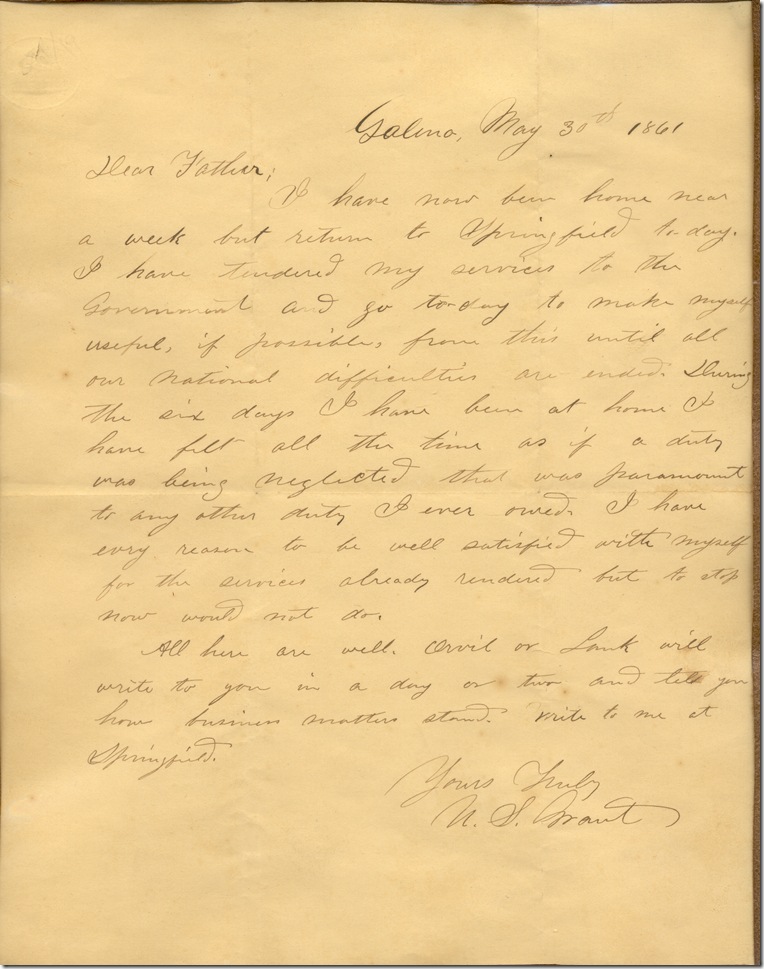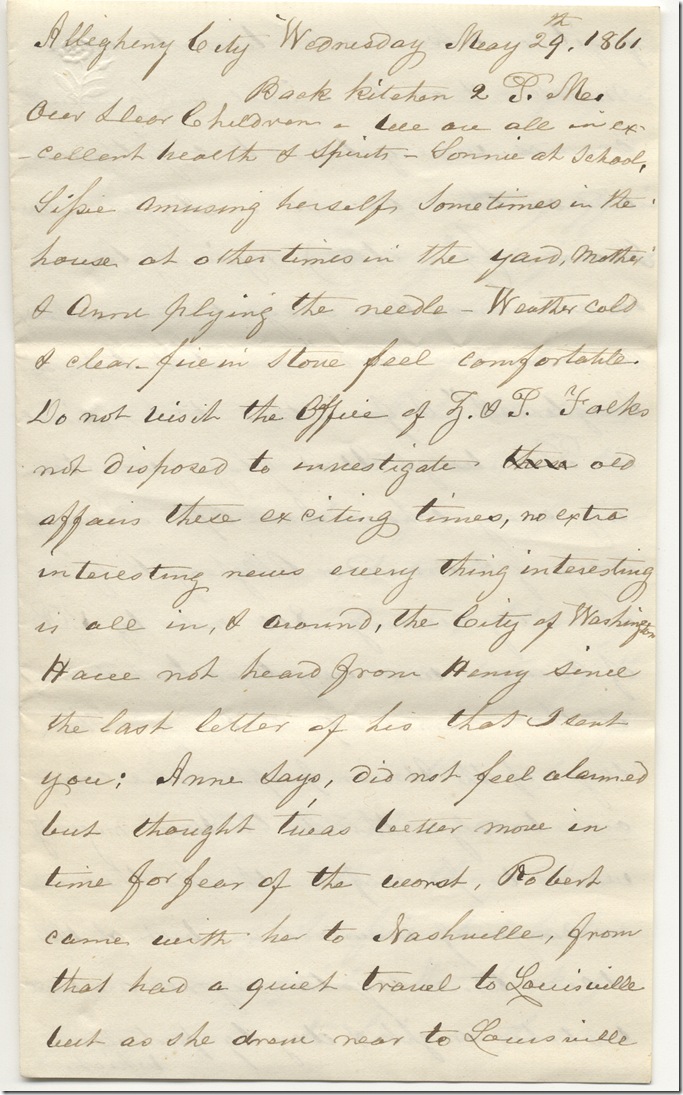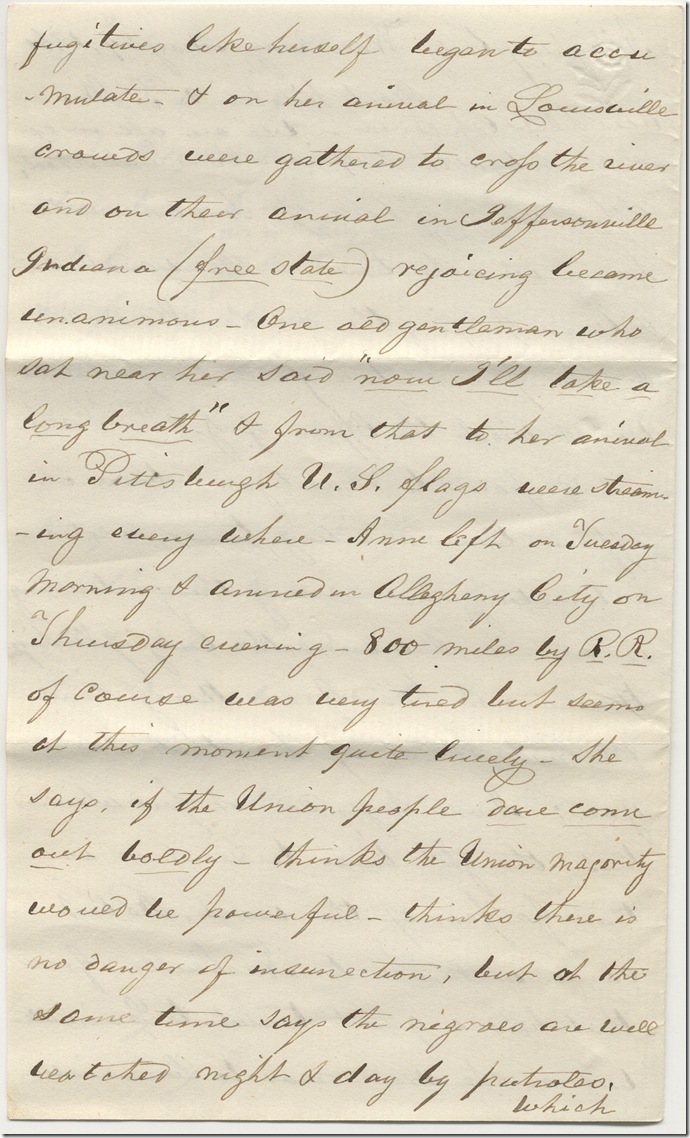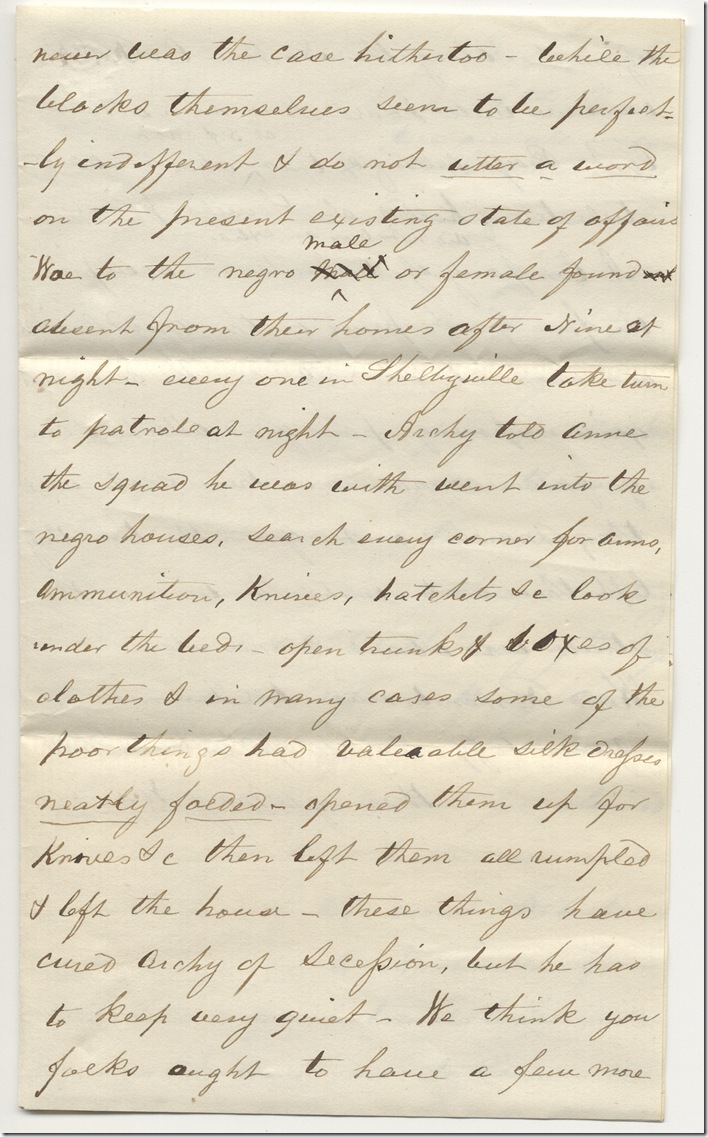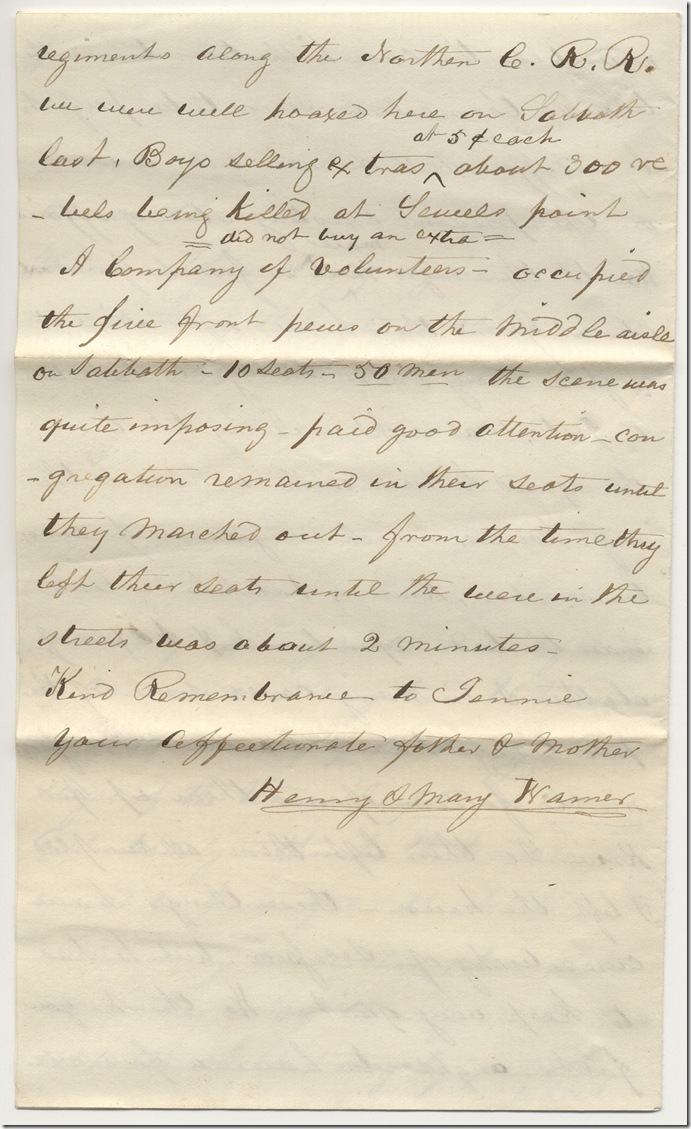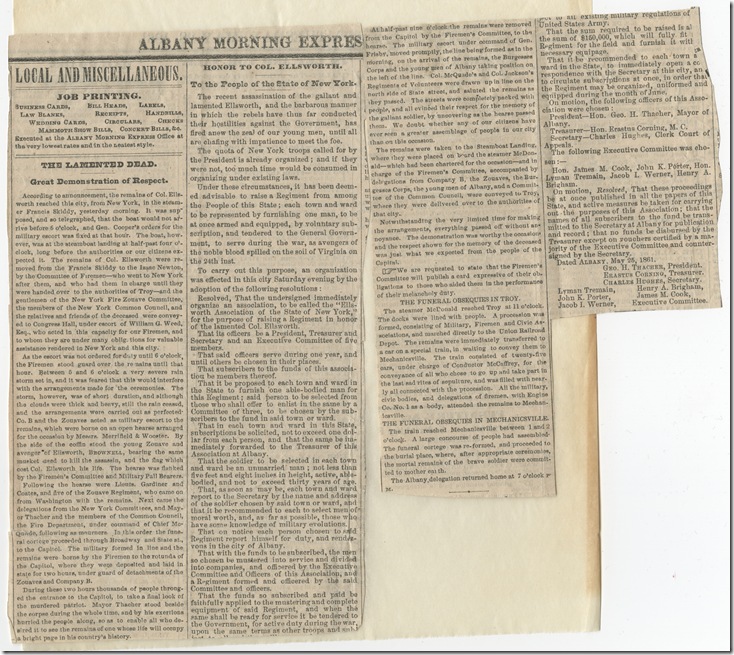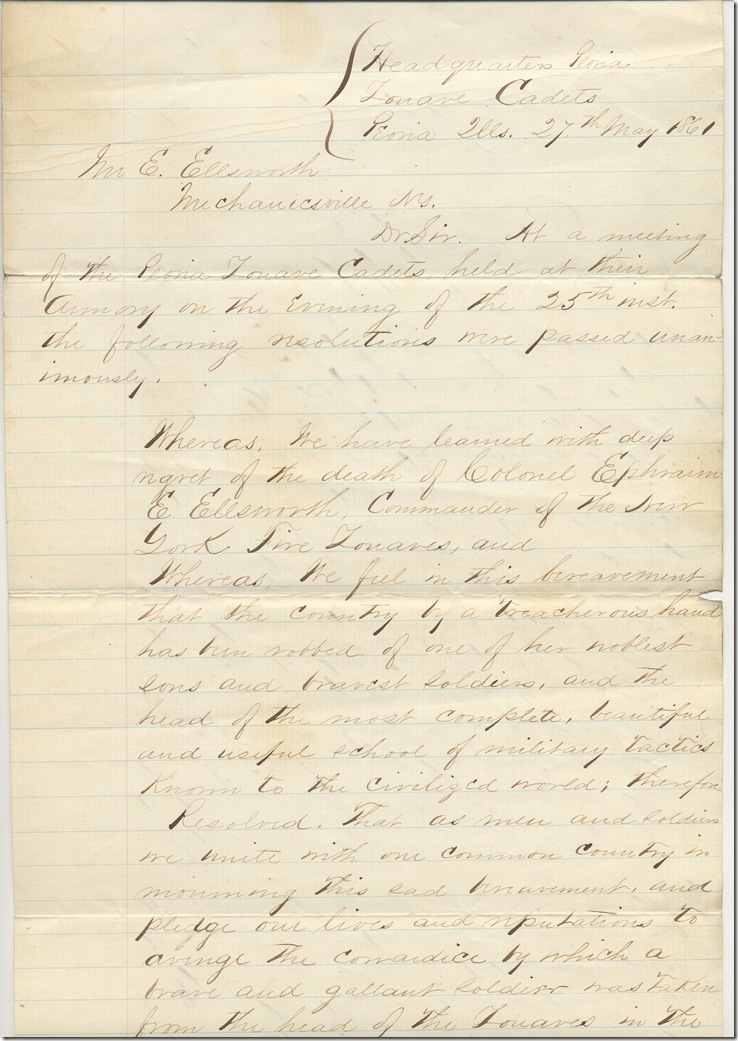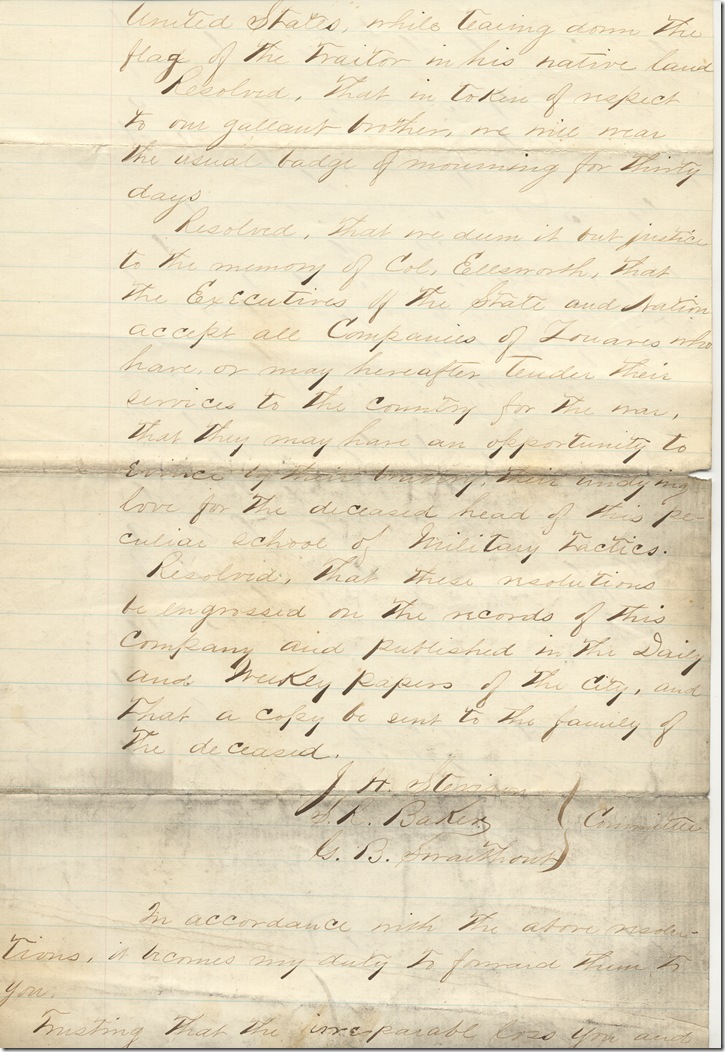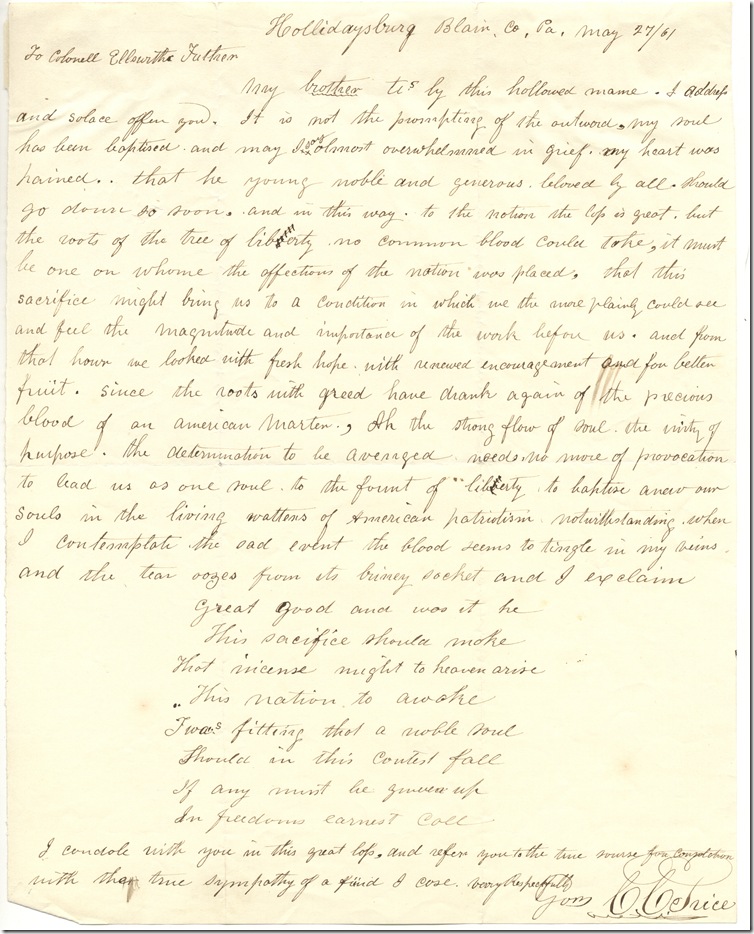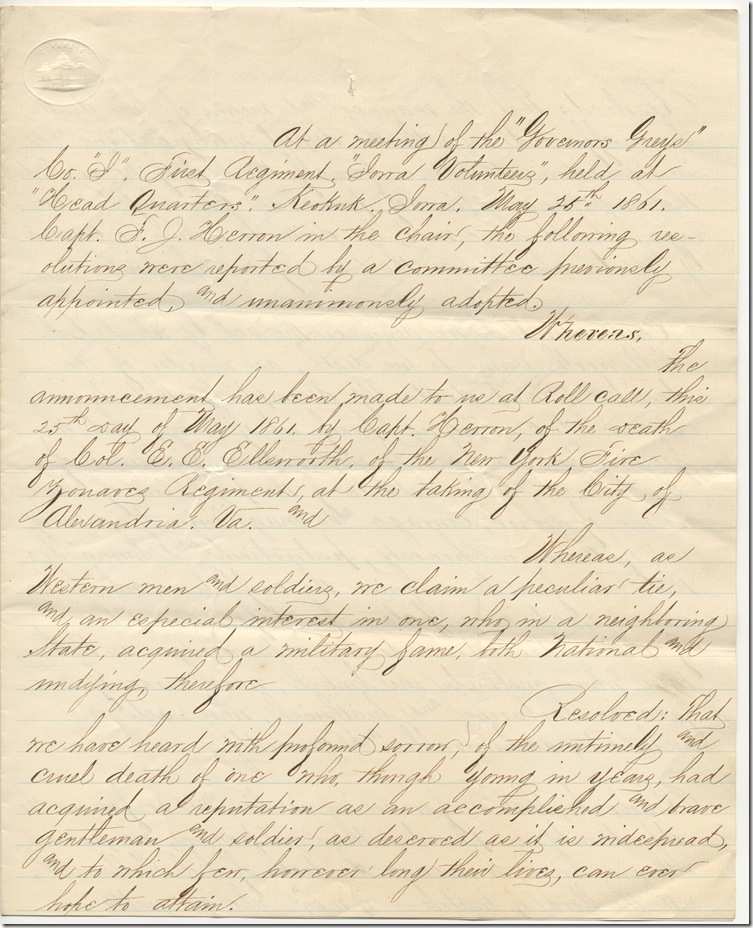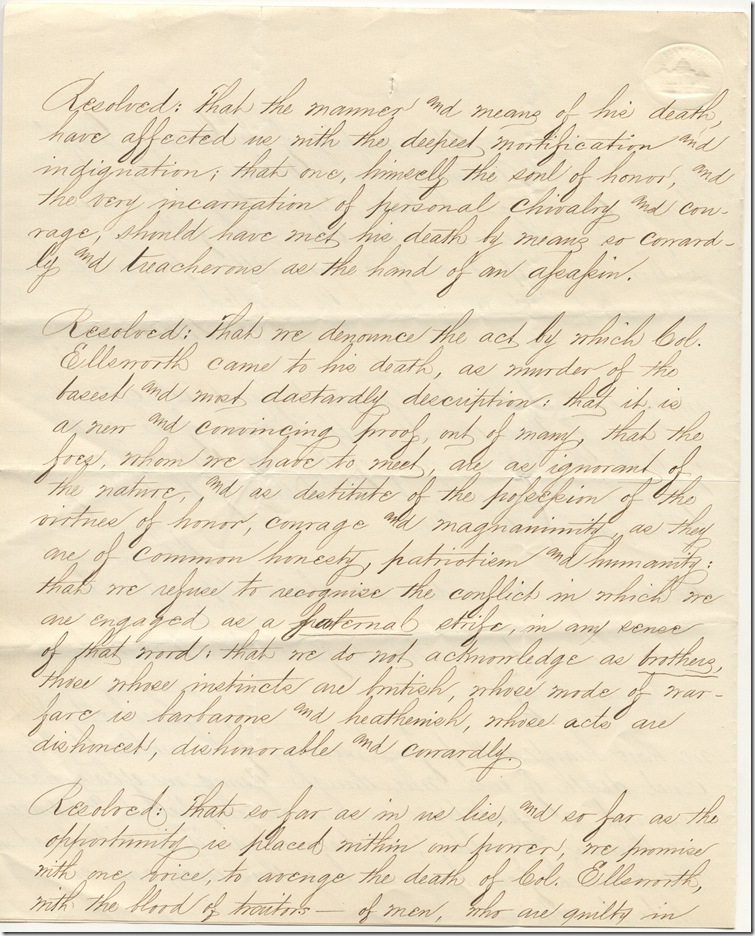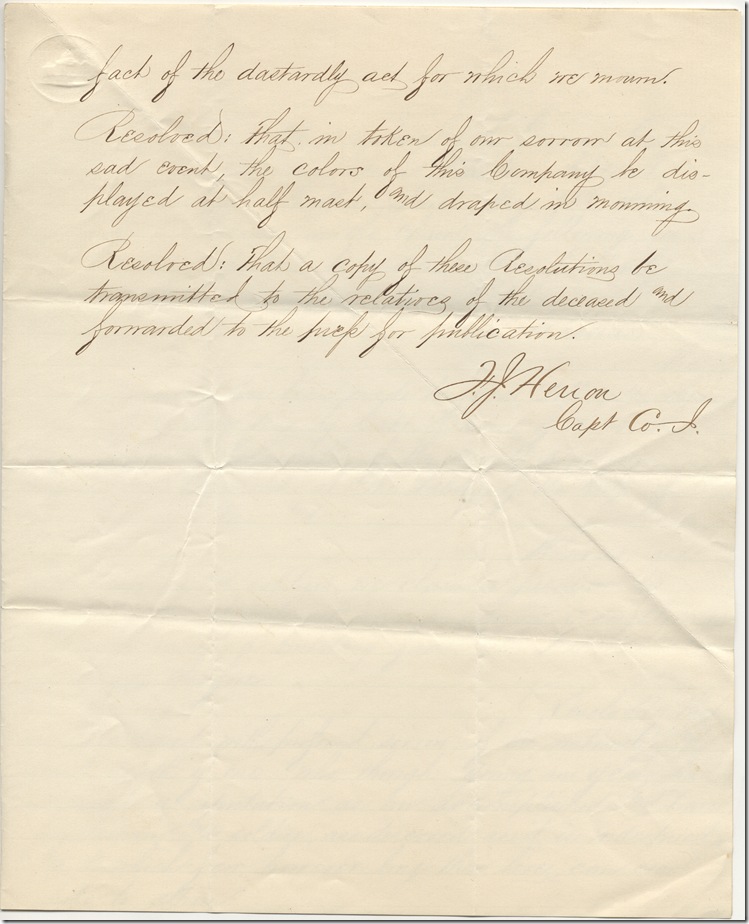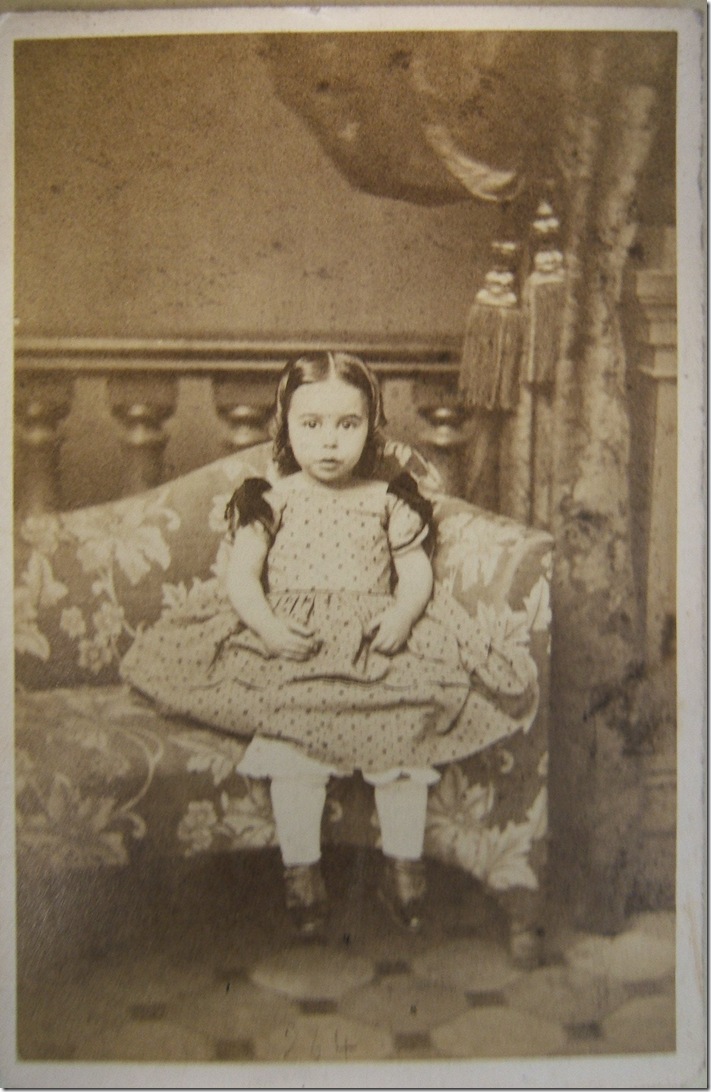Col. Elmer Ellsworth was a lawyer and soldier and friend of Abraham Lincoln who would become one of the first casualties of the Civil War. As a colonel of the Chicago National Guard Cadets before the war, Ellsworth introduced French-inspired Zouave uniforms and drills to the unit. He worked in Lincoln’s law office in August 1860 and assisted him during the fall campaign. After Lincoln’s election he helped organize troops, including the 11th New York Volunteer Infantry Regiment, which was composed of fire fighters. He was shot and killed on May 24, 1861 while removing a large Confederate flag from a tavern in Alexandria, Virginia.
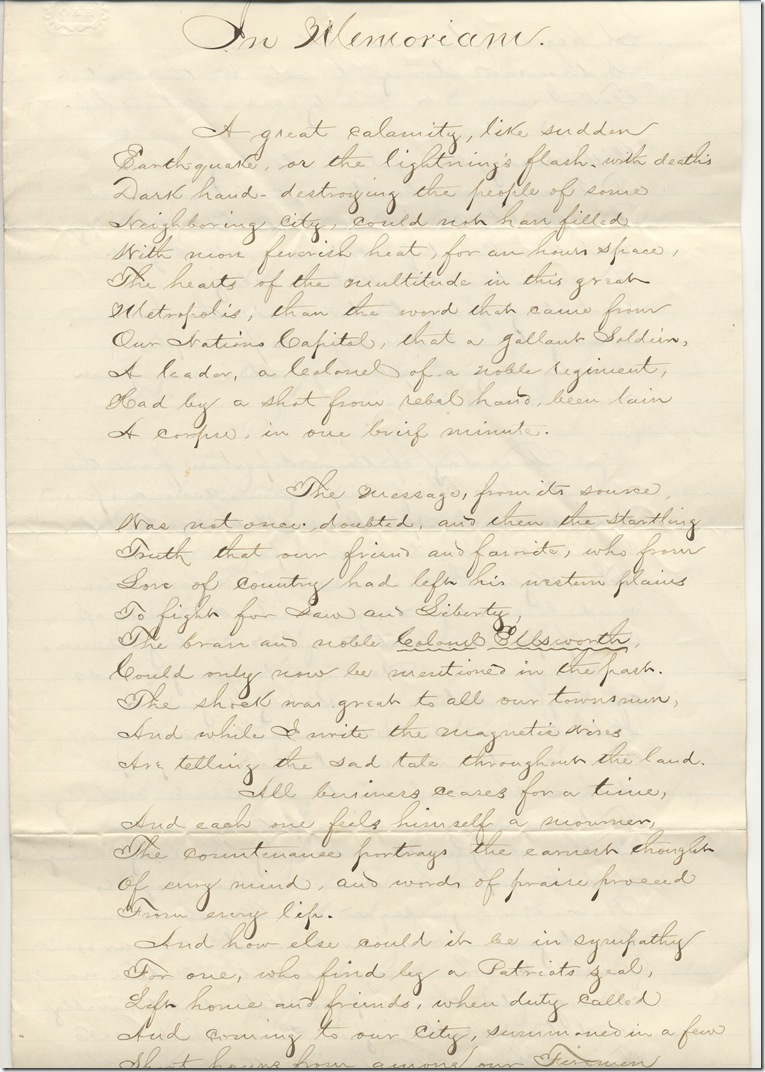
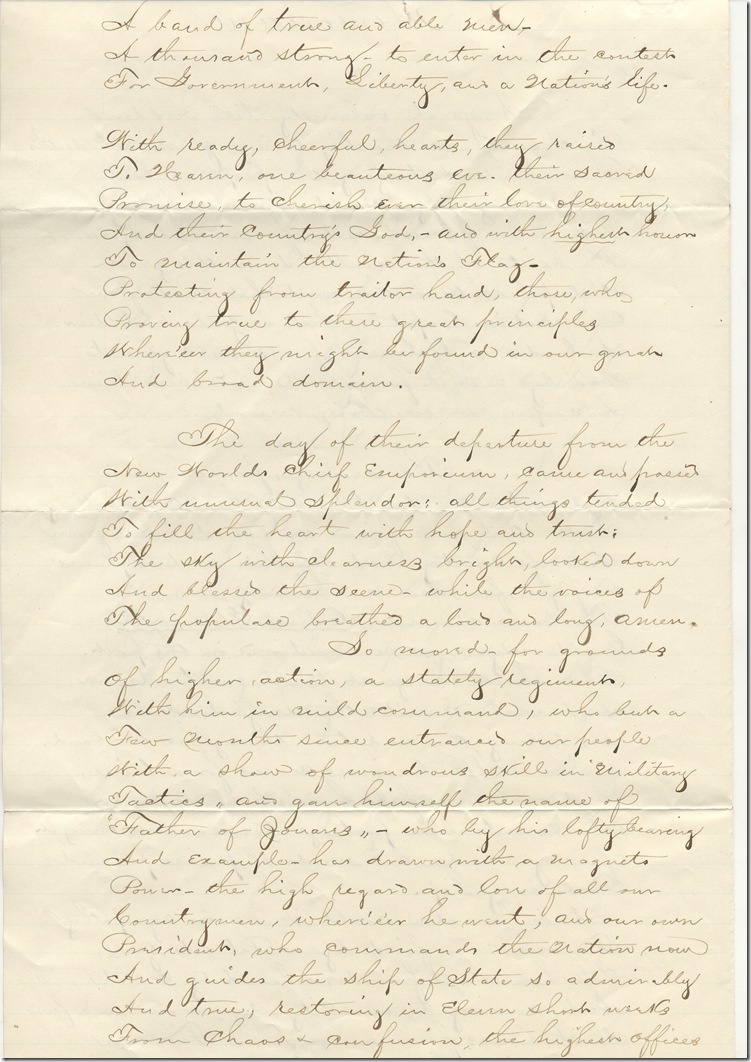
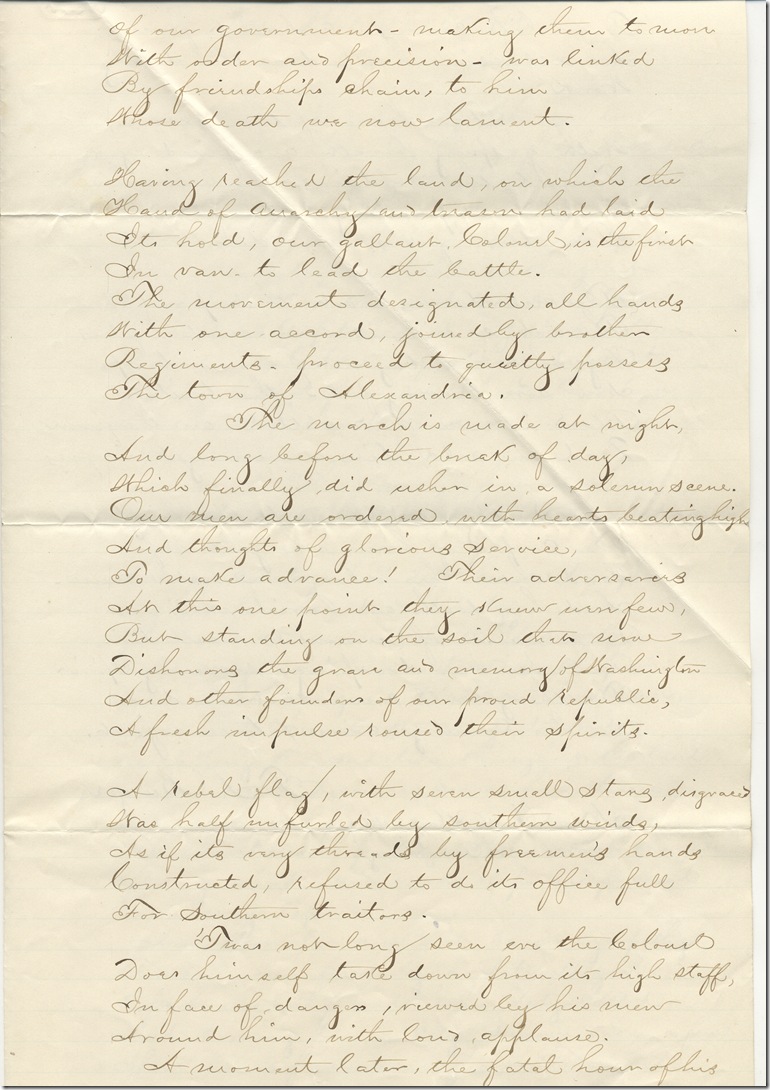
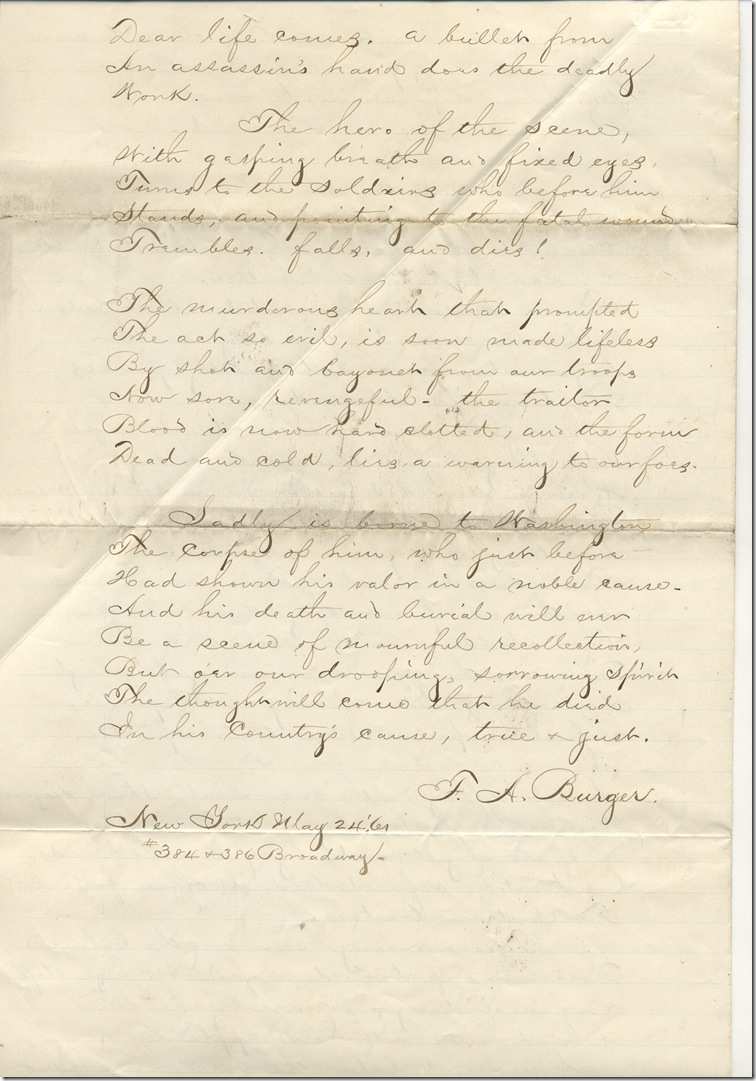
Transcript:
In Memoriam.
A great calamity, like sudden
Earthquake, or the lightning’s flash, with death’s
Dark hand- destroying the people of some
Neighboring city, could not have filled
With more feverish heat, for an hours space,
The hearts of the multitude in this great
Metropolis, than the word that came from
Our Nations Capitol, that a gallant Soldier,
A leader, a Colonel of a noble regiment,
Had by a shot from rebel hands, been lain
A corpse, in one brief minute.
The message, from its source,
Was not once doubted, and then the startling
Truth that our friend and favorite, who from
Love of country had left his western plains
To fight for Law and Liberty,
The brave and noble Colonel Ellsworth,
Could only now be mentioned in the past.
The shock was great to all our townsmen,
And while I write the magnetic stories
Are telling the sad tale throughout the land.
All business ceases for a time,
And each one feels himself a mourner,
The countenance portrays the earnest thought
Of every mind, and words of praise proceed
From every lip.
And how else could it be in sympathy
For one, who fired by a Patriots zeal,
Left home and friends, when duty called
And coming to our City, surrounded in a few
Short hours from among our Firemen
A band of true and able men-
A thousand strong- to enter in the contest
For Government, Liberty, and a Nation’s life.
With ready, cheerful hearts, they raised
To Heaven, one beauteous eve. their sacred
Promise, to cherish ever their love of country,
And their country’s God,- and with highest honor
To maintain their Nation’s Flag.
Protesting from traitor hand, those, who
Proving true to there great principles
Where’eer they might be found in our great
And broad domain.
The day of their departure from the
New Worlds Chief Emporium, came and passed
With unusual splendor: all things tended
To fill the heart with hope and trust:
The sky with clearness bright, looked down
And blessed the scene- while the voices of
The populace breathed a loud and long, amen.
So moved for grounds
Of higher action, a stately regiment
With him in wild command, who but a
Few months since entranced our people
With a show of wondrous skill in “military
Tactics,” and gave himself the name of
“Father of Zouaves”- who by his lofty learning
And example- has drawn with a magnet
Power- the high regard and love of all our
Countrymen, where’e’er he went, and our own
President, who commands the station now
And guides the ship of State so admirably
And true, restoring in Eleven short weeks
From chaos & confusion, the highest offices
Of government- making them to move
With order and precision- was linked
By friendships chain, to him
Whose death we now lament.
Having reached the land, on which the
Hand of Anarchy and treason had laid
Its hold, our gallant Colonel is the first
In war to lead the battle.
The movement designated, all hands
With one accord, joined by brother
Regiments- proceed to quietly possess
The town of Alexandria.
The march is made at night,
And long before the break of day,
Which finally did usher in a solemn scene.
Our men are ordered, with hearts beating high
And thoughts of glorious Service,
To make advance! Their adversaries
At this one point they knew were few,
But standing on the soil that now
Dishonors the grave and memory of Washington
And other founds of our proud republic,
A fresh impulse roused their spirits.
A rebel flag, with seven small stars, disgraced
Was half unfurled by southern winds,
As if its very threads by freemen’s hands
Constructed, refused to do its office full
For Southern traitors.
‘Twas not long seen ere the Colonel
Does himself take down from its high staff,
In face of dangers, viewed by his men
Around him, with loud applause.
A moment later, the fatal hour of his
Dear life comes, a bullet from
An assassin’s hand does the deadly
Work.
The hero of the scene,
With gasping breaths and fired eyes,
Turns to the soldiers who before him
Stands, and pointing to the fatal wound
Trembles, falls, and dies!
The murderous heart that prompted
The act so evil, is soon made lifeless
By shot and bayonet from our troops
Now sore, revengeful- the traitor
Blood is now hard clotted, and the form
Dead and cold, lies a warning to our foes.
Sadly is bourne to Washington
The corpse of him, who just before
Had shown his valor in a noble cause-
And his death and burial will ever
Be a scene of mournful recollection,
But o’er our drooping, sorrowing spirits
The thought will come that he died
In his Country’s cause, true & just
F. A. Burger
New York May 24 ‘61
#384 & 386 Broadway
Citation:F. A. Burger, “In Memoriam.”1861.AMs 811/2.6
